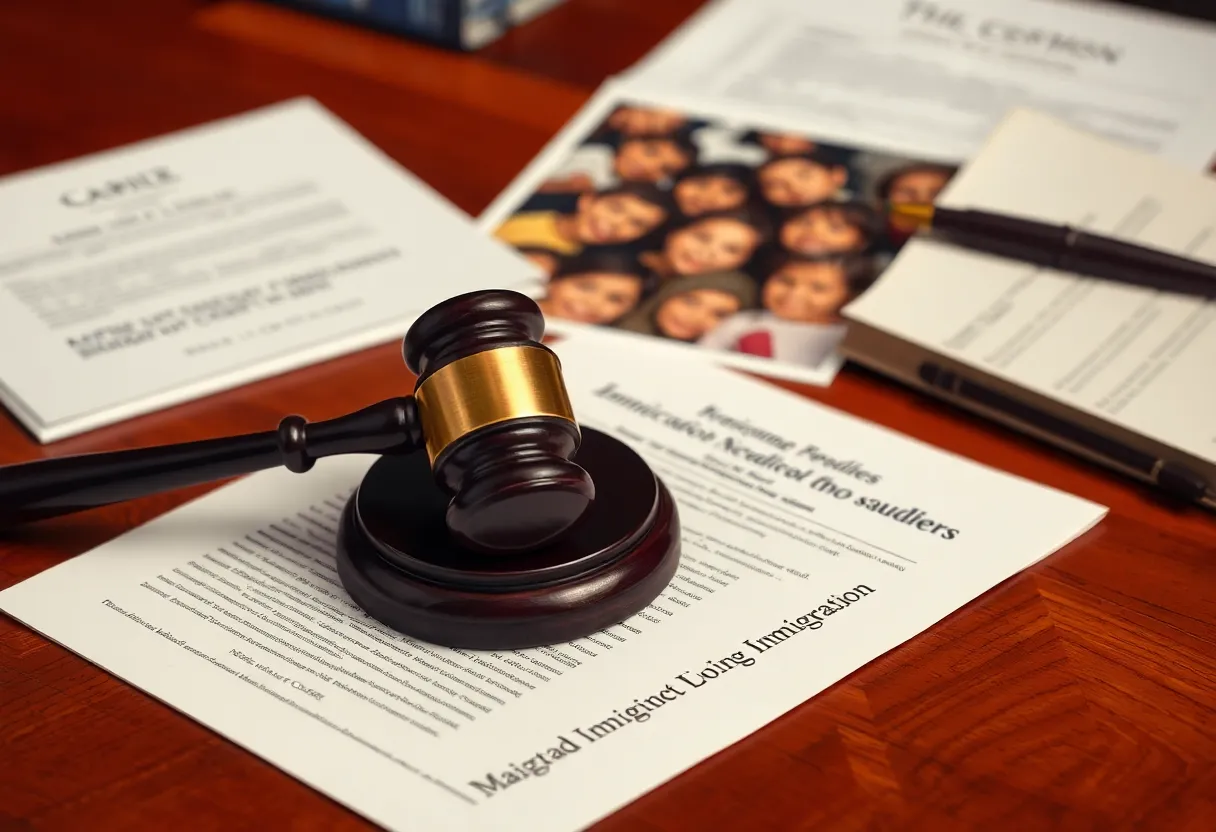News Summary
A federal judge in Arizona has temporarily stopped the deportation of unaccompanied minors from Guatemala and Honduras, citing concerns over their safety and legal representation. This ruling extends protections amid rising ethical questions regarding the Trump administration’s deportation strategy, allowing the children to present their immigration claims. Advocacy groups highlight the urgent need for better legal processes for vulnerable minors facing deportation.
Arizona Judge Halts Deportation of Children from Central America
A federal judge in Arizona has issued a temporary injunction to stop the Trump administration from deporting dozens of unaccompanied children from Guatemala and Honduras. U.S. District Judge Rosemary Márquez’s ruling comes amid rising concerns regarding the adequacy of preparations for the deportation process, which has raised ethical and legal questions.
The preliminary injunction extends protections originally provided through a temporary restraining order issued during Labor Day weekend. This ruling will remain effective until at least September 26, 2025. The legal action was initiated by the Florence Immigrant & Refugee Rights Project on behalf of 69 minors—57 from Guatemala and 12 from Honduras—ranging in age from 3 to 17.
Judge Márquez’s decision highlights significant issues regarding the lack of coordination with the children’s parents or guardians in Guatemala, surrounding their return. Many of the children involved expressed fears of returning to their home countries, citing concerns about neglect, potential child trafficking, and personal hardships they faced.
In late August, the Trump administration informed shelters that they needed to prepare for the imminent deportation of these children, with only hours’ notice. Reports indicate that some minors were already boarding planes in Texas for deportation back to Guatemala before the temporary restraining order came into effect on August 31.
The Arizona lawsuit demands that the children be permitted to present their immigration claims, receive legal representation, and be placed in the least restrictive environments available. Critics contend that the deportation efforts violate the rights of unaccompanied minors, as outlined in the Trafficking Victims Protection Reauthorization Act, which aims to ensure their safety and proper legal processes.
While the White House defended the deportation strategy by claiming it was in the children’s best interest, the measures involved in the repatriation have raised eyebrows. They stated that the intent was to reunite these children with their parents in Guatemala. U.S. officials had previously alerted shelters about the deportation measures, which many advocates argue undermined the children’s access to legal support.
After the lawsuit was filed, revelations surfaced indicating that many children were abruptly awakened in the middle of the night to prepare for deportation, furthering concerns about the treatment they received in the process. Judge Márquez, during court proceedings, pointed out the inadequacies in legal representation available to these minors and the lack of proper coordination.
The ongoing case has seen the Arizona lawsuit amended to include additional children who entered custody after the initial filing. Advocates assert that the deportation could cause irreparable harm, as it denies these children their right to due process.
Civil rights organizations have described the attempts at deportation as unlawful and detrimental to vulnerable children fleeing violence and instability in their home countries. The concerns raised in this legal challenge reveal the potential dangers faced by minors during this immigration process and call into question the ethical implications of such rapid deportation measures.
As the legal battle continues, the impact of such policies on young lives remains a focal point of discussion among activists and legal experts. The outcome could have far-reaching implications not only for the children involved but for future immigration policy concerning unaccompanied minors.
In conclusion, the court’s decision to halt deportations offers temporary relief to these children as discussions around their legal rights and welfare unfold. The case illustrates the complex intersection of immigration law, child welfare, and human rights, underscoring the urgency of addressing these critical issues within the broader policy framework.
Deeper Dive: News & Info About This Topic
- ABC News
- Wikipedia: Immigration in the United States
- Newsday
- Google Search: Arizona judge blocks deportation of children
- AP News
- Google Scholar: Deportation of unaccompanied minors
- Tucson Sentinel
- Encyclopedia Britannica: Immigration
- ABC 7
- Google News: Deportation of children from Guatemala

Author: STAFF HERE PHOENIX WRITER
The PHOENIX STAFF WRITER represents the experienced team at HEREPhoenix.com, your go-to source for actionable local news and information in Phoenix, Maricopa County, and beyond. Specializing in "news you can use," we cover essential topics like product reviews for personal and business needs, local business directories, politics, real estate trends, neighborhood insights, and state news affecting the area—with deep expertise drawn from years of dedicated reporting and strong community input, including local press releases and business updates. We deliver top reporting on high-value events such as the Waste Management Phoenix Open, Cactus League Spring Training, and Arizona State Fair. Our coverage extends to key organizations like the Greater Phoenix Chamber of Commerce and Visit Phoenix, plus leading businesses in technology and healthcare that power the local economy such as Intel and Banner Health. As part of the broader HERE network, including HERETucson.com, we provide comprehensive, credible insights into Arizona's dynamic landscape.





